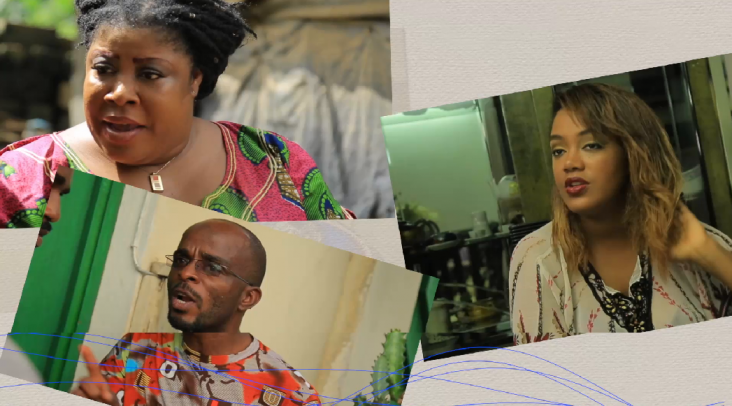
March 2016—Following the violence of the 2010 presidential elections, many Ivorian women were reluctant to take part in the electoral process after experiencing traumatic events, including forced displacement, rape and killings. These women had come to consider elections as synonymous with trouble.
“Let those people have their election and leave us alone. We only want to get on with our lives,” was the common refrain from women. The absence of women from future elections would not only affect the credibility of the elections, but would also eliminate their needs from the political agenda.
To mitigate this, USAID supported the production and broadcast of a TV series, You Decide!, sharing information targeted at women and youth on the electoral process and the benefits of participating. The show was broadcast throughout the election season last year. At least 1.7 million viewers watched the series.
Actors from the mini-series also took the message on the road with information-sharing caravans held in the markets of Koumassi, Abobo, Yopougon, Duékoué and Bangolo. These events were widely appreciated, particularly in the west, where one of the youth participants in Bangolo, Jeannot Gueï, remarked, “We don’t usually see our favorite stars—all the better as they are talking peace. Because they don’t belong to any political party, we are reassured about the sincerity of the message.”
Producer/actress Dent de Man was a little apprehensive about the community meetings at first. “A member of the Dialogue and Reconciliation Commission told me that their cars were stoned because the population wanted to hear nothing about reconciliation,” she said.
But de Man admitted she found a receptive audience for her message of peace and the importance of women having their voice heard. “You are the guardians of your homes,” she said. “Don’t allow these politicians to give weapons to your children. If they die, it is only you that will feel the pain of their absence.” The women present at the forum erupted in agreement.
“These women’s messages really hit home because many of us gave our lives for these politicians, but today there’s nothing to show for it. No good comes of violence,” said Naneyon Alou, a youth residing in Yopougon, Abidjan.
“Usually, people don’t leave their villages to listen to such messages unless you provide them with transport and the like,” said Zougoueu Mathurin, deputy chief of staff for the mayor of Guiglo, affirming the strategy of involving well-known actors in an educational campaign. “In this case, though, they are coming out in large numbers to hear the messages.”
At least 4,500 women were reached through the awareness campaigns in the west, and 15,000 around Abidjan, the country’s largest city.
Turnout for this election proved to be balanced: 50 percent of voters were women.
LINKS







Comment
Make a general inquiry or suggest an improvement.